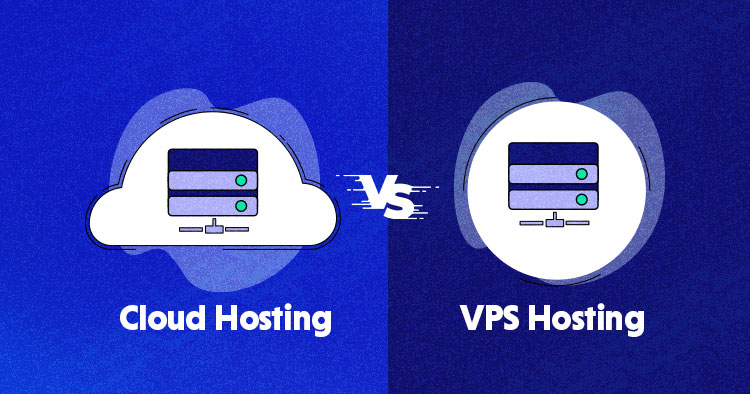When it comes to choosing the right hosting solution for your website or application, the decision often boils down to Cloud Hosting vs. VPS Hosting. Both options offer distinct advantages and can cater to different needs. This article will explore the differences, benefits, and potential drawbacks of each, helping you make an informed choice.
What is Cloud Hosting?
Cloud hosting is a type of web hosting that uses multiple servers to balance the load and maximize uptime. Instead of relying on a single server, your website taps into a “cloud” of interconnected servers. This setup allows for greater flexibility and scalability, making it easier to handle traffic spikes and ensure consistent performance.
Key Features of Cloud Hosting:
- Scalability: Easily scale resources up or down based on demand.
- Reliability: Redundant server setup minimizes downtime.
- Performance: Load balancing across multiple servers enhances speed and performance.
- Cost-Effective: Pay-as-you-go pricing models allow for cost efficiency.
What is VPS Hosting?
VPS (Virtual Private Server) hosting involves partitioning a physical server into multiple virtual servers, each with its own dedicated resources. Unlike shared hosting, where multiple websites share the same resources, VPS hosting provides you with a portion of the server’s resources, ensuring better performance and control.
Key Features of VPS Hosting:
- Dedicated Resources: Guaranteed CPU, RAM, and storage.
- Customization: Full root access allows for extensive customization.
- Performance: Better performance compared to shared hosting.
- Cost-Effective: More affordable than dedicated hosting while offering similar benefits.
Key Differences Between Cloud Hosting and VPS Hosting
- Scalability:
- Cloud Hosting: Highly scalable, allowing for quick adjustments to resource allocation.
- VPS Hosting: Limited scalability compared to cloud hosting, though still more scalable than shared hosting.
- Performance:
- Cloud Hosting: Superior performance due to load balancing across multiple servers.
- VPS Hosting: Reliable performance with dedicated resources, though it may not match the scalability of cloud hosting.
- Cost:
- Cloud Hosting: Pay-as-you-go pricing can be more economical, especially for fluctuating traffic.
- VPS Hosting: Fixed pricing may be more predictable, though it can become costly as resource needs grow.
- Control:
- Cloud Hosting: Typically offers less control over the server environment.
- VPS Hosting: Full root access allows for extensive customization and control.
Which One is Right for You?
Choose Cloud Hosting if:
- You expect fluctuating traffic and need a scalable solution.
- You want to ensure maximum uptime and reliability.
- You prefer a pay-as-you-go pricing model.
Choose VPS Hosting if:
- You need dedicated resources and better performance than shared hosting.
- You require extensive control and customization of your server environment.
- You have a predictable traffic pattern and prefer fixed pricing.
Conclusion
Both Cloud Hosting and VPS Hosting offer unique benefits that cater to different needs. Cloud hosting excels in scalability and reliability, making it ideal for growing businesses and websites with variable traffic. On the other hand, VPS hosting offers dedicated resources and greater control, suiting those who need a more customized environment. Assess your specific requirements, budget, and future growth plans to decide which hosting solution is right for you.

